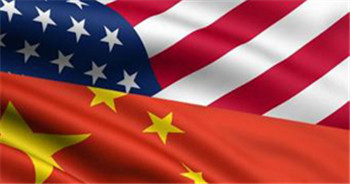(单词翻译:单击)

In the past five years, 15 of the OECD’s 36 member countries have raised policy rates, some prematurely, only to cut them again. Last week’s decision by the Federal Reserve to hold the rate steady showed that it has yet to find the confidence to be the 16th. Unlike its peers, though, the Fed is sometimes uniquely conflicted, having to balance both domestic and global factors.
过去五年里,经合组织(OECD) 36个成员国中有15个提高了政策利率,其中一些国家动手太早,结果再次降息。上周,美联储(Fed)决定保持利率不变,证明其尚不具备成为第16个加息的OECD国家央行的信心。不过,与其他央行不同,美联储有时会陷入独一无二的矛盾处境,因为它不得不平衡国内和全球因素。
While the domestic argument for an initial policy rate change remains firm, the Fed acknowledged that global developments centred around China and emerging markets, which had led to market and economic turbulence, had swung opinion back again. But August’s tremors were not isolated or random, and force us to ask how long this stand-off can go on, given that China’s travails, for example, are not going to end anytime soon. And what if it did go on? The US economic case for a gradual exit from zero rates has been growing steadily, with decent employment growth, unemployment at just over 5 per cent, and wage and salary formation starting to build slowly. It is true that some labour market indicators, such as the employment-to-population and labour force participation ratios, are at a 35-year low, though some of this is structural.
虽然对美国国内来说,开始调整政策利率的理由依然十分充分,但美联储承认,围绕中国和新兴市场的全球事态(这些事态已导致市场和经济动荡)已令它改变想法。不过,8月的动荡既不是孤立现象,也不是随机现象。它迫使我们问这样的问题:假如中国的阵痛不会在短期内结束,这种对峙状况能够持续多久?如果它真的持续下去,会发生什么?就美国经济而言,逐步退出零利率状态的理由一直在稳步增强,这些理由包括就业增长较快,失业率仅略高于5%,薪资正开始缓慢增长。当然,一些劳动力市场指标,如就业占总人口的比例以及劳动力参与率,正处于35年来最低水平,尽管这其中有一部分是结构性的。
That said, the so-called U6 unemployment rate (including people marginally attached to the labour force and those working part-time for economic reasons) is at the same level it was when the Fed initiated its last tightening cycle in 2004. The core personal consumption deflator then, moreover, was only 0.3 per cent higher than August’s 1.4 per cent.
话虽如此,所谓的U6失业率(包括了那些待业和因经济原因而兼职的人)与2004年美联储启动上一轮收紧周期时处于同一水平。那时的个人消费支出平减指数也只比今年8月份的1.4%高了0.3%。
The international backdrop, though, is sensitive. Twice before, Fed tightening cycles and a robust US dollar have been associated with emerging market crises. US monetary policy in 1979-82 proved too much for indebted Latin America, and in 1994-95 it contributed to the Asian crisis. This time, a change in US monetary policy would not so much trigger a China or emerging markets crisis that has already started as accentuate it. As Janet Yellensuggested after last week’s Fed meeting, that crisis could also affect the US in coming months. It is easy to see why Fed officials backed away from these risks. A paper by the Bank for International Settlements pointed to strong spillovers into emerging markets from US monetary policies that go far beyond interest rate and exchange rate relationships.
不过,目前的国际大环境相当敏感。美联储收紧周期和美元走强的局面曾两度伴随新兴市场危机。美国在1979年到1982年期间的货币政策,使债台高筑的拉美不堪重负。而1994年到1995年期间的美国货币政策又间接导致了亚洲金融危机。这一次,美国货币政策的调整与其说引爆中国或新兴市场的危机(这些危机已经开场),不如说加剧这些危机。正如珍妮特耶伦(Janet Yellen)在上周美联储议息会议后所暗示的,在接下来几个月里,这些危机可能也会影响美国。美联储官员在这类风险面前知难而退的原因不言自明。国际清算银行(Bank for International Settlements)一篇论文指出,美国货币政策对新兴市场存在强大的溢出效应,远远超越利率和汇率关系的范畴。
During the past few years of easy money, the US dollar’s special role as a funding and financing currency has contributed to balance sheet, asset price and domestic credit excesses that are reversing, first with US dollar appreciation, and next, if or when US policy rates go up. The consequences for economic and investment growth in emerging markets are clear.
在过去几年的宽松货币时代,美元作为筹融资货币的特殊地位,对资产负债表、资产价格和国内过度信贷起到了推波助澜的作用。这些过度正在逆转,最初是由于美元升值,下一个触发因素则会是美国政策利率上升。对新兴市场的经济和投资增长来说,后果显而易见。
This should not be a reason to desist from making a policy rate change if otherwise justified. It would not be painless, but many important emerging markets have experienced sharp currency depreciations, have lengthening debt maturity profiles and still have relatively high levels of reserves. China, at the heart of the emerging market maelstrom, faces a multiyear period in which the investment share of GDP is likely to drop from an unprecedented 45 per cent to something closer to 35 per cent, in keeping with the experience of Japan and other “tiger” economies.
不过,这不应成为即使条件具备也不改变政策利率的理由。加息不会毫无痛苦,然而许多重要的新型市场的货币已经大幅贬值,具有越来越长的债务期限,其外汇储备水平相对也仍然较高。处于新兴市场风暴核心的中国,目前面临一个持续多年的调整时期,其间投资占国内生产总值(GDP)的比例可能会从史无前例的45%滑落至更接近35%的水平,与日本及其他“老虎”经济体的经历相符。
The downswing is being driven by a structural real estate overhang and chronic industrial overcapacity, not helped by the continuing shortcomings of state enterprise reforms. No one can foresee how this transition will be managed, especially given a highly uncertain political and policy backdrop, or what the cyclical or currency consequences might entail. This begs the question: how long should the Fed cite China or emerging markets as a reason for keeping rates on hold, especially if the domestic case for not doing so becomes even more compelling? Seven years of zero interest rates have contributed to mounting financial distortions in emerging markets.
中国这次下行是结构性房地产过剩和慢性工业产能过剩导致的,国企改革的种种持续性弊端也于事无补。没人能预见这种转型将得到怎样的管理——尤其是考虑到高度不确定的政治和政策大背景、或者周期或汇率后果可能会牵涉的方方面面。这令人不得不问:美联储应在多长时间内将中国或新兴市场作为保持利率不变的理由,尤其是在美国国内的加息理由变得更加充分的情况下?长达7年的零利率助长了新兴市场愈演愈烈的金融扭曲。
If the Fed continued with financial market stability as the leitmotif of policymaking, a later but more disruptive policy adjustment and greater instability are the all too likely outcomes. The Fed should start telling markets about the difficult trade-offs it faces.
若美联储继续把金融市场的稳定性作为政策制定的指导思想,极有可能出现的结果是更迟出台但更具破坏性的政策调整以及更大的不稳定。美联储应开始将其面临的艰难抉择告知市场。
George Magnus is a senior economic adviser at UBS and an associate at Oxford university’s China Centre
乔治氠格努斯(George Magnus)是瑞银(UBS)高级经济顾问、牛津大学(Oxford University)中国中心(China Centre)研究员


